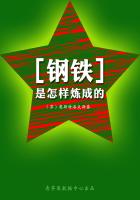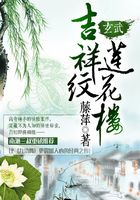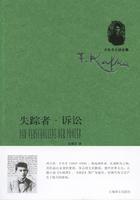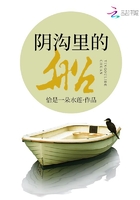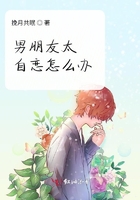I am doubtful whether I was at heart glad or sorry, when my school-days drew to an end, and the time came for my leaving Doctor Strong's. I had been very happy there, I had a great attachment for the Doctor, and I was eminent and distinguished in that little world. For these reasons I was sorry to go; but for other reasons, unsubstantial enough, I was glad. Misty ideas of being a young man at my own disposal, of the importance attaching to a young man at his own disposal, of the wonderful things to be seen and done by that magnificent animal, and the wonderful effects he could not fail to make upon society, lured me away. So powerful were these visionary considerations in my boyish mind, that I seem, according to my present way of thinking, to have left school without natural regret. The separation has not made the impression on me, that other separations have. I try in vain to recall how I felt about it, and what its circumstances were; but it is not momentous in my recollection. I suppose the opening prospect confused me. I know that my juvenile experiences went for little or nothing then; and that life was more like a great fairy story, which I was just about to begin to read, than anything else.
My aunt and I had held many grave deliberations on the calling to which I should be devoted. For a year or more I had endeavoured to find a satisfactory answer to her often-repeated question,'What I would like to be?'But I had no particular liking, that I could discover, for anything. If I could have been inspired with a knowledge of the science of navigation, taken the command of a fast-sailing expedition, and gone round the world on a triumphant voyage of discovery, I think I might have considered myself completely suited. But, in the absence of any such miraculous provision, my desire was to apply myself to some pursuit that would not lie too heavily upon her purse; and to do my duty in it, whatever it might be.
Mr. **** had regularly assisted at our councils, with a meditative and sage demeanour. He never made a suggestion but once; and on that occasion (I don't know what put it in his head), he suddenly proposed that I should be'a Brazier'. My aunt received this proposal so very ungraciously, that he never ventured on a second; but ever afterwards confined himself to looking watchfully at her for her suggestions, and rattling his money.
'Trot, I tell you what, my dear,'said my aunt, one morning in the Christmas season when I left school:'as this knotty point is still unsettled, and as we must not make a mistake in our decision if we can help it, I think we had better take a little breathing-time. In the meanwhile, you must try to look at it from a new point of view, and not as a schoolboy.'
'I will, aunt.'
'It has occurred to me,'pursued my aunt,'that a little change, and a glimpse of life out of doors, may be useful in helping you to know your own mind, and form a cooler judgement. Suppose you were to go down into the old part of the country again, for instance, and see that—that out-of-the-way woman with the savagest of names,'said my aunt, rubbing her nose, for she could never thoroughly forgive Peggotty for being so called.
'Of all things in the world, aunt, I should like it best!'
'Well,'said my aunt,'that's lucky, for I should like it too. But it's natural and rational that you should like it. And I am very well persuaded that whatever you do, Trot, will always be natural and rational.'
'I hope so, aunt.'
'Your sister, Betsey Trotwood,'said my aunt,'would have been as natural and rational a girl as ever breathed. You'll be worthy of her, won't you?'
'I hope I shall be worthy of YOU, aunt. That will be enough for me.'
'It's a mercy that poor dear baby of a mother of yours didn't live,'said my aunt, looking at me approvingly,'or she'd have been so vain of her boy by this time, that her soft little head would have been completely turned, if there was anything of it left to turn.'(My aunt always excused any weakness of her own in my behalf, by transferring it in this way to my poor mother.)'Bless me, Trotwood, how you do remind me of her!'
'Pleasantly, I hope, aunt?'said I.
'He's as like her, ****,'said my aunt, emphatically,'he's as like her, as she was that afternoon before she began to fret—bless my heart, he's as like her, as he can look at me out of his two eyes!'
'Is he indeed?'said Mr. ****.
'And he's like David, too,'said my aunt, decisively.
'He is very like David!'said Mr. ****.
'But what I want you to be, Trot,'resumed my aunt,'—I don't mean physically, but morally; you are very well physically—is, a firm fellow. A fine firm fellow, with a will of your own. With resolution,'said my aunt, shaking her cap at me, and clenching her hand.'With determination. With character, Trot—with strength of character that is not to be influenced, except on good reason, by anybody, or by anything. That's what I want you to be. That's what your father and mother might both have been, Heaven knows, and been the better for it.'
I intimated that I hoped I should be what she described.
'That you may begin, in a small way, to have a reliance upon yourself, and to act for yourself,'said my aunt,'I shall send you upon your trip, alone. I did think, once, of Mr. ****'s going with you; but, on second thoughts, I shall keep him to take care of me.'
Mr. ****, for a moment, looked a little disappointed; until the honour and dignity of having to take care of the most wonderful woman in the world, restored the sunshine to his face.
'Besides,'said my aunt,'there's the Memorial—'
'Oh, certainly,'said Mr. ****, in a hurry,'I intend, Trotwood, to get that done immediately—it really must be done immediately! And then it will go in, you know—and then—'said Mr. ****, after checking himself, and pausing a long time,'there'll be a pretty kettle of fish!'
In pursuance of my aunt's kind scheme, I was shortly afterwards fitted out with a handsome purse of money, and a portmanteau, and tenderly dismissed upon my expedition. At parting, my aunt gave me some good advice, and a good many kisses; and said that as her object was that I should look about me, and should think a little, she would recommend me to stay a few days in London, if I liked it, either on my way down into Suffolk, or in coming back. In a word, I was at liberty to do what I would, for three weeks or a month; and no other conditions were imposed upon my ******* than the before-mentioned thinking and looking about me, and a pledge to write three times a week and faithfully report myself.
I went to Canterbury first, that I might take leave of Agnes and Mr. Wickfield (my old room in whose house I had not yet relinquished), and also of the good Doctor. Agnes was very glad to see me, and told me that the house had not been like itself since I had left it.
'I am sure I am not like myself when I am away,'said I.'I seem to want my right hand, when I miss you. Though that's not saying much; for there's no head in my right hand, and no heart. Everyone who knows you, consults with you, and is guided by you, Agnes.'
'Everyone who knows me, spoils me, I believe,'she answered, smiling.
'No. It's because you are like no one else. You are so good, and so sweet-tempered. You have such a gentle nature, and you are always right.'
'You talk,'said Agnes, breaking into a pleasant laugh, as she sat at work,'as if I were the late Miss Larkins.'
'Come! It's not fair to abuse my confidence,'I answered, reddening at the recollection of my blue enslaver.'But I shall confide in you, just the same, Agnes. I can never grow out of that. Whenever I fall into trouble, or fall in love, I shall always tell you, if you'll let me—even when I come to fall in love in earnest.'
'Why, you have always been in earnest!'said Agnes, laughing again.
'Oh! that was as a child, or a schoolboy,'said I, laughing in my turn, not without being a little shame-faced.'Times are altering now, and I suppose I shall be in a terrible state of earnestness one day or other. My wonder is, that you are not in earnest yourself, by this time, Agnes.'
Agnes laughed again, and shook her head.
'Oh, I know you are not!'said I,'because if you had been you would have told me. Or at least'—for I saw a faint blush in her face,'you would have let me find it out for myself. But there is no one that I know of, who deserves to love you, Agnes. Someone of a nobler character, and more worthy altogether than anyone I have ever seen here, must rise up, before I give my consent. In the time to come, I shall have a wary eye on all admirers; and shall exact a great deal from the successful one, I assure you.'
We had gone on, so far, in a mixture of confidential jest and earnest, that had long grown naturally out of our familiar relations, begun as mere children. But Agnes, now suddenly lifting up her eyes to mine, and speaking in a different manner, said:
'Trotwood, there is something that I want to ask you, and that I may not have another opportunity of asking for a long time, perhaps—something I would ask, I think, of no one else. Have you observed any gradual alteration in Papa?'
I had observed it, and had often wondered whether she had too. I must have shown as much, now, in my face; for her eyes were in a moment cast down, and I saw tears in them.
'Tell me what it is,'she said, in a low voice.
'I think—shall I be quite plain, Agnes, liking him so much?'
'Yes,'she said.
'I think he does himself no good by the habit that has increased upon him since I first came here. He is often very nervous—or I fancy so.'
'It is not fancy,'said Agnes, shaking her head.
'His hand trembles, his speech is not plain, and his eyes look wild. I have remarked that at those times, and when he is least like himself, he is most certain to be wanted on some business.'
'By Uriah,'said Agnes.
'Yes; and the sense of being unfit for it, or of not having understood it, or of having shown his condition in spite of himself, seems to make him so uneasy, that next day he is worse, and next day worse, and so he becomes jaded and haggard. Do not be alarmed by what I say, Agnes, but in this state I saw him, only the other evening, lay down his head upon his desk, and shed tears like a child.'
Her hand passed softly before my lips while I was yet speaking, and in a moment she had met her father at the door of the room, and was hanging on his shoulder. The expression of her face, as they both looked towards me, I felt to be very touching. There was such deep fondness for him, and gratitude to him for all his love and care, in her beautiful look; and there was such a fervent appeal to me to deal tenderly by him, even in my inmost thoughts, and to let no harsh construction find any place against him; she was, at once, so proud of him and devoted to him, yet so compassionate and sorry, and so reliant upon me to be so, too; that nothing she could have said would have expressed more to me, or moved me more.
We were to drink tea at the Doctor's. We went there at the usual hour; and round the study fireside found the Doctor, and his young wife, and her mother. The Doctor, who made as much of my going away as if I were going to China, received me as an honoured guest; and called for a log of wood to be thrown on the fire, that he might see the face of his old pupil reddening in the blaze.
'I shall not see many more new faces in Trotwood's stead, Wickfield,'said the Doctor, warming his hands;'I am getting lazy, and want ease. I shall relinquish all my young people in another six months, and lead a quieter life.'
'You have said so, any time these ten years, Doctor,'Mr. Wickfield answered.
'But now I mean to do it,'returned the Doctor.'My first master will succeed me—I am in earnest at last—so you'll soon have to arrange our contracts, and to bind us firmly to them, like a couple of knaves.'
'And to take care,'said Mr. Wickfield,'that you're not imposed on, eh? As you certainly would be, in any contract you should make for yourself. Well! I am ready. There are worse tasks than that, in my calling.'
'I shall have nothing to think of then,'said the Doctor, with a smile,'but my Dictionary; and this other contract-bargain—Annie.'
As Mr. Wickfield glanced towards her, sitting at the tea table by Agnes, she seemed to me to avoid his look with such unwonted hesitation and timidity, that his attention became fixed upon her, as if something were suggested to his thoughts.
'There is a post come in from India, I observe,'he said, after a short silence.
'By the by! and letters from Mr. Jack Maldon!'said the Doctor.
'Indeed!''Poor dear Jack!'said Mrs. Markleham, shaking her head.'That trying climate!—like living, they tell me, on a sand-heap, underneath a burning-glass! He looked strong, but he wasn't. My dear Doctor, it was his spirit, not his constitution, that he ventured on so boldly. Annie, my dear, I am sure you must perfectly recollect that your cousin never was strong—not what can be called ROBUST, you know,'said Mrs. Markleham, with emphasis, and looking round upon us generally,'—from the time when my daughter and himself were children together, and walking about, arm-in-arm, the livelong day.'
Annie, thus addressed, made no reply.
'Do I gather from what you say, ma'am, that Mr. Maldon is ill?'asked Mr. Wickfield.
'Ill!'replied the Old Soldier.'My dear sir, he's all sorts of things.'
'Except well?'said Mr. Wickfield.
'Except well, indeed!'said the Old Soldier.'He has had dreadful strokes of the sun, no doubt, and jungle fevers and agues, and every kind of thing you can mention. As to his liver,'said the Old Soldier resignedly,'that, of course, he gave up altogether, when he first went out!'
'Does he say all this?'asked Mr. Wickfield.
'Say? My dear sir,'returned Mrs. Markleham, shaking her head and her fan,'you little know my poor Jack Maldon when you ask that question. Say? Not he. You might drag him at the heels of four wild horses first.'
'Mama!'said Mrs. Strong.
'Annie, my dear,'returned her mother,'once for all, I must really beg that you will not interfere with me, unless it is to confirm what I say. You know as well as I do that your cousin Maldon would be dragged at the heels of any number of wild horses—why should I confine myself to four! I WON'T confine myself to four—eight, sixteen, two-and-thirty, rather than say anything calculated to overturn the Doctor's plans.'
'Wickfield's plans,'said the Doctor, stroking his face, and looking penitently at his adviser.'That is to say, our joint plans for him. I said myself, abroad or at home.'
'And I said'added Mr. Wickfield gravely,'abroad. I was the means of sending him abroad. It's my responsibility.'
'Oh! Responsibility!'said the Old Soldier.'Everything was done for the best, my dear Mr. Wickfield; everything was done for the kindest and best, we know. But if the dear fellow can't live there, he can't live there. And if he can't live there, he'll die there, sooner than he'll overturn the Doctor's plans. I know him,'said the Old Soldier, fanning herself, in a sort of calm prophetic agony,'and I know he'll die there, sooner than he'll overturn the Doctor's plans.'
'Well, well, ma'am,'said the Doctor cheerfully,'I am not bigoted to my plans, and I can overturn them myself. I can substitute some other plans. If Mr. Jack Maldon comes home on account of ill health, he must not be allowed to go back, and we must endeavour to make some more suitable and fortunate provision for him in this country.'
Mrs. Markleham was so overcome by this generous speech—which, I need not say, she had not at all expected or led up to—that she could only tell the Doctor it was like himself, and go several times through that operation of kissing the sticks of her fan, and then tapping his hand with it. After which she gently chid her daughter Annie, for not being more demonstrative when such kindnesses were showered, for her sake, on her old playfellow; and entertained us with some particulars concerning other deserving members of her family, whom it was desirable to set on their deserving legs.
All this time, her daughter Annie never once spoke, or lifted up her eyes. All this time, Mr. Wickfield had his glance upon her as she sat by his own daughter's side. It appeared to me that he never thought of being observed by anyone; but was so intent upon her, and upon his own thoughts in connexion with her, as to be quite absorbed. He now asked what Mr. Jack Maldon had actually written in reference to himself, and to whom he had written?
'Why, here,'said Mrs. Markleham, taking a letter from the chimney-piece above the Doctor's head,'the dear fellow says to the Doctor himself—where is it? Oh!—“I am sorry to inform you that my health is suffering severely, and that I fear I may be reduced to the necessity of returning home for a time, as the only hope of restoration.”That's pretty plain, poor fellow! His only hope of restoration! But Annie's letter is plainer still. Annie, show me that letter again.'
'Not now, mama,'she pleaded in a low tone.
'My dear, you absolutely are, on some subjects, one of the most ridiculous persons in the world,'returned her mother,'and perhaps the most unnatural to the claims of your own family. We never should have heard of the letter at all, I believe, unless I had asked for it myself. Do you call that confidence, my love, towards Doctor Strong? I am surprised. You ought to know better.'
The letter was reluctantly produced; and as I handed it to the old lady, I saw how the unwilling hand from which I took it, trembled.
'Now let us see,'said Mrs. Markleham, putting her glass to her eye,'where the passage is.“The remembrance of old times, my dearest Annie”—and so forth—it's not there.“The amiable old Proctor”—who's he? Dear me, Annie, how illegibly your cousin Maldon writes, and how stupid I am!“Doctor,”of course. Ah! amiable indeed!'Here she left off, to kiss her fan again, and shake it at the Doctor, who was looking at us in a state of placid satisfaction.'Now I have found it.“You may not be surprised to hear, Annie,”—no, to be sure, knowing that he never was really strong; what did I say just now?—“that I have undergone so much in this distant place, as to have decided to leave it at all hazards; on sick leave, if I can; on total resignation, if that is not to be obtained. What I have endured, and do endure here, is insupportable.”And but for the promptitude of that best of creatures,'said Mrs. Markleham, telegraphing the Doctor as before, and refolding the letter,'it would be insupportable to me to think of.'
Mr. Wickfield said not one word, though the old lady looked to him as if for his commentary on this intelligence; but sat severely silent, with his eyes fixed on the ground. Long after the subject was dismissed, and other topics occupied us, he remained so; seldom raising his eyes, unless to rest them for a moment, with a thoughtful frown, upon the Doctor, or his wife, or both.
The Doctor was very fond of music. Agnes sang with great sweetness and expression, and so did Mrs. Strong. They sang together, and played duets together, and we had quite a little concert. But I remarked two things: first, that though Annie soon recovered her composure, and was quite herself, there was a blank between her and Mr. Wickfield which separated them wholly from each other; secondly, that Mr. Wickfield seemed to dislike the intimacy between her and Agnes, and to watch it with uneasiness. And now, I must confess, the recollection of what I had seen on that night when Mr. Maldon went away, first began to return upon me with a meaning it had never had, and to trouble me. The innocent beauty of her face was not as innocent to me as it had been; I mistrusted the natural grace and charm of her manner; and when I looked at Agnes by her side, and thought how good and true Agnes was, suspicions arose within me that it was an ill-assorted friendship.
She was so happy in it herself, however, and the other was so happy too, that they made the evening fly away as if it were but an hour. It closed in an incident which I well remember. They were taking leave of each other, and Agnes was going to embrace her and kiss her, when Mr. Wickfield stepped between them, as if by accident, and drew Agnes quickly away. Then I saw, as though all the intervening time had been cancelled, and I were still standing in the doorway on the night of the departure, the expression of that night in the face of Mrs. Strong, as it confronted his.
I cannot say what an impression this made upon me, or how impossible I found it, when I thought of her afterwards, to separate her from this look, and remember her face in its innocent loveliness again. It haunted me when I got home. I seemed to have left the Doctor's roof with a dark cloud lowering on it. The reverence that I had for his grey head, was mingled with commiseration for his faith in those who were treacherous to him, and with resentment against those who injured him. The impending shadow of a great affliction, and a great disgrace that had no distinct form in it yet, fell like a stain upon the quiet place where I had worked and played as a boy, and did it a cruel wrong. I had no pleasure in thinking, any more, of the grave old broad-leaved aloe-trees, which remained shut up in themselves a hundred years together, and of the trim smooth grass-plot, and the stone urns, and the Doctor's walk, and the congenial sound of the Cathedral bell hovering above them all. It was as if the tranquil sanctuary of my boyhood had been sacked before my face, and its peace and honour given to the winds.
But morning brought with it my parting from the old house, which Agnes had filled with her influence; and that occupied my mind sufficiently. I should be there again soon, no doubt; I might sleep again—perhaps often—in my old room; but the days of my inhabiting there were gone, and the old time was past. I was heavier at heart when I packed up such of my books and clothes as still remained there to be sent to Dover, than I cared to show to Uriah Heep; who was so officious to help me, that I uncharitably thought him mighty glad that I was going.
I got away from Agnes and her father, somehow, with an indifferent show of being very manly, and took my seat upon the box of the London coach. I was so softened and forgiving, going through the town, that I had half a mind to nod to my old enemy the butcher, and throw him five shillings to drink. But he looked such a very obdurate butcher as he stood scraping the great block in the shop, and moreover, his appearance was so little improved by the loss of a front tooth which I had knocked out, that I thought it best to make no advances.
The main object on my mind, I remember, when we got fairly on the road, was to appear as old as possible to the coachman, and to speak extremely gruff. The latter point I achieved at great personal inconvenience; but I stuck to it, because I felt it was a grown-up sort of thing.
'You are going through, sir?'said the coachman.
'Yes, William,'I said, condescendingly (I knew him);'I am going to London. I shall go down into Suffolk afterwards.'
'Shooting, sir?'said the coachman.
He knew as well as I did that it was just as likely, at that time of year, I was going down there whaling; but I felt complimented, too.
'I don't know,'I said, pretending to be undecided,'whether I shall take a shot or not.'
'Birds is got wery shy, I'm told,'said William.
'So I understand,'said I.
'Is Suffolk your county, sir?'asked William.
'Yes,'I said, with some importance.'Suffolk's my county.'
'I'm told the dumplings is uncommon fine down there,'said William.
I was not aware of it myself, but I felt it necessary to uphold the institutions of my county, and to evince a familiarity with them; so I shook my head, as much as to say,'I believe you!'
'And the Punches,'said William.'There's cattle! A Suffolk Punch, when he's a good un, is worth his weight in gold. Did you ever breed any Suffolk Punches yourself, sir?'
'N-no,'I said,'not exactly.'
'Here's a gen'lm'n behind me, I'll pound it,'said William,'as has bred 'em by wholesale.'
The gentleman spoken of was a gentleman with a very unpromising squint, and a prominent chin, who had a tall white hat on with a narrow flat brim, and whose close-fitting drab trousers seemed to button all the way up outside his legs from his boots to his hips. His chin was cocked over the coachman's shoulder, so near to me, that his breath quite tickled the back of my head; and as I looked at him, he leered at the leaders with the eye with which he didn't squint, in a very knowing manner.
'Ain't you?'asked William.
'Ain't I what?'said the gentleman behind.
'Bred them Suffolk Punches by wholesale?'
'I should think so,'said the gentleman.'There ain't no sort of orse that I ain't bred, and no sort of dorg. Orses and dorgs is some men's fancy. They're wittles and drink to me—lodging, wife, and children—reading, writing, and Arithmetic—snuff, tobacker, and sleep.'
'That ain't a sort of man to see sitting behind a coach-box, is it though?'said William in my ear, as he handled the reins.
I construed this remark into an indication of a wish that he should have my place, so I blushingly offered to resign it.
'Well, if you don't mind, sir,'said William,'I think it would be more correct.'
I have always considered this as the first fall I had in life. When I booked my place at the coach office I had had'Box Seat'written against the entry, and had given the book-keeper half-a-crown. I was got up in a special great-coat and shawl, expressly to do honour to that distinguished eminence; had glorified myself upon it a good deal; and had felt that I was a credit to the coach. And here, in the very first stage, I was supplanted by a shabby man with a squint, who had no other merit than smelling like a livery-stables, and being able to walk across me, more like a fly than a human being, while the horses were at a canter!
A distrust of myself, which has often beset me in life on small occasions, when it would have been better away, was assuredly not stopped in its growth by this little incident outside the Canterbury coach. It was in vain to take refuge in gruffness of speech. I spoke from the pit of my stomach for the rest of the journey, but I felt completely extinguished, and dreadfully young.
It was curious and interesting, nevertheless, to be sitting up there behind four horses: well educated, well dressed, and with plenty of money in my pocket; and to look out for the places where I had slept on my weary journey. I had abundant occupation for my thoughts, in every conspicuous landmark on the road. When I looked down at the trampers whom we passed, and saw that well-remembered style of face turned up, I felt as if the tinker's blackened hand were in the bosom of my shirt again. When we clattered through the narrow street of Chatham, and I caught a glimpse, in passing, of the lane where the old monster lived who had bought my jacket, I stretched my neck eagerly to look for the place where I had sat, in the sun and in the shade, waiting for my money. When we came, at last, within a stage of London, and passed the veritable Salem House where Mr. Creakle had laid about him with a heavy hand, I would have given all I had, for lawful permission to get down and thrash him, and let all the boys out like so many caged sparrows.
We went to the Golden Cross at Charing Cross, then a mouldy sort of establishment in a close neighbourhood. A waiter showed me into the coffee-room; and a chambermaid introduced me to my small bedchamber, which smelt like a hackney-coach, and was shut up like a family vault. I was still painfully conscious of my youth, for nobody stood in any awe of me at all: the chambermaid being utterly indifferent to my opinions on any subject, and the waiter being familiar with me, and offering advice to my inexperience.
'Well now,'said the waiter, in a tone of confidence,'what would you like for dinner? Young gentlemen likes poultry in general: have a fowl!'
I told him, as majestically as I could, that I wasn't in the humour for a fowl.
'Ain't you?'said the waiter.'Young gentlemen is generally tired of beef and mutton: have a weal cutlet!'
I assented to this proposal, in default of being able to suggest anything else.
'Do you care for taters?'said the waiter, with an insinuating smile, and his head on one side.'Young gentlemen generally has been overdosed with taters.'
I commanded him, in my deepest voice, to order a veal cutlet and potatoes, and all things fitting; and to inquire at the bar if there were any letters for Trotwood Copperfield, Esquire—which I knew there were not, and couldn't be, but thought it manly to appear to expect.
He soon came back to say that there were none (at which I was much surprised) and began to lay the cloth for my dinner in a box by the fire. While he was so engaged, he asked me what I would take with it; and on my replying'Half a pint of sherry,'thought it a favourable opportunity, I am afraid, to extract that measure of wine from the stale leavings at the bottoms of several small decanters. I am of this opinion, because, while I was reading the newspaper, I observed him behind a low wooden partition, which was his private apartment, very busy pouring out of a number of those vessels into one, like a chemist and druggist ****** up a preion. When the wine came, too, I thought it flat; and it certainly had more English crumbs in it, than were to be expected in a foreign wine in anything like a pure state, but I was bashful enough to drink it, and say nothing.
Being then in a pleasant frame of mind (from which I infer that poisoning is not always disagreeable in some stages of the process), I resolved to go to the play. It was Covent Garden Theatre that I chose; and there, from the back of a centre box, I saw Julius Caesar and the new Pantomime. To have all those noble Romans alive before me, and walking in and out for my entertainment, instead of being the stern taskmasters they had been at school, was a most novel and delightful effect. But the mingled reality and mystery of the whole show, the influence upon me of the poetry, the lights, the music, the company, the smooth stupendous changes of glittering and brilliant scenery, were so dazzling, and opened up such illimitable regions of delight, that when I came out into the rainy street, at twelve o'clock at night, I felt as if I had come from the clouds, where I had been leading a romantic life for ages, to a bawling, splashing, link-lighted, umbrella-struggling, hackney-coach-jostling, patten-clinking, muddy, miserable world.
I had emerged by another door, and stood in the street for a little while, as if I really were a stranger upon earth: but the unceremonious pushing and hustling that I received, soon recalled me to myself, and put me in the road back to the hotel; whither I went, revolving the glorious vision all the way; and where, after some porter and oysters, I sat revolving it still, at past one o'clock, with my eyes on the coffee-room fire.
I was so filled with the play, and with the past—for it was, in a manner, like a shining transparency, through which I saw my earlier life moving along—that I don't know when the figure of a handsome well-formed young man dressed with a tasteful easy negligence which I have reason to remember very well, became a real presence to me. But I recollect being conscious of his company without having noticed his coming in—and my still sitting, musing, over the coffee-room fire.
At last I rose to go to bed, much to the relief of the sleepy waiter, who had got the fidgets in his legs, and was twisting them, and hitting them, and putting them through all kinds of contortions in his small pantry. In going towards the door, I passed the person who had come in, and saw him plainly. I turned directly, came back, and looked again. He did not know me, but I knew him in a moment.
At another time I might have wanted the confidence or the decision to speak to him, and might have put it off until next day, and might have lost him. But, in the then condition of my mind, where the play was still running high, his former protection of me appeared so deserving of my gratitude, and my old love for him overflowed my breast so freshly and spontaneously, that I went up to him at once, with a fast-beating heart, and said:
'Steerforth! won't you speak to me?'
He looked at me—just as he used to look, sometimes—but I saw no recognition in his face.
'You don't remember me, I am afraid,'said I.
'My God!'he suddenly exclaimed.'It's little Copperfield!'
I grasped him by both hands, and could not let them go. But for very shame, and the fear that it might displease him, I could have held him round the neck and cried.
'I never, never, never was so glad! My dear Steerforth, I am so overjoyed to see you!'
'And I am rejoiced to see you, too!'he said, shaking my hands heartily.'Why, Copperfield, old boy, don't be overpowered!'And yet he was glad, too, I thought, to see how the delight I had in meeting him affected me.
I brushed away the tears that my utmost resolution had not been able to keep back, and I made a clumsy laugh of it, and we sat down together, side by side.
'Why, how do you come to be here?'said Steerforth, clapping me on the shoulder.
'I came here by the Canterbury coach, today. I have been adopted by an aunt down in that part of the country, and have just finished my education there. How do YOU come to be here, Steerforth?'
'Well, I am what they call an Oxford man,'he returned;'that is to say, I get bored to death down there, periodically—and I am on my way now to my mother's. You're a devilish amiable-looking fellow, Copperfield. Just what you used to be, now I look at you! Not altered in the least!'
'I knew you immediately,'I said;'but you are more easily remembered.'
He laughed as he ran his hand through the clustering curls of his hair, and said gaily:
'Yes, I am on an expedition of duty. My mother lives a little way out of town; and the roads being in a beastly condition, and our house tedious enough, I remained here tonight instead of going on. I have not been in town half-a-dozen hours, and those I have been dozing and grumbling away at the play.'
'I have been at the play, too,'said I.'At Covent Garden. What a delightful and magnificent entertainment, Steerforth!'
Steerforth laughed heartily.
'My dear young Davy,'he said, clapping me on the shoulder again,'you are a very Daisy. The daisy of the field, at sunrise, is not fresher than you are. I have been at Covent Garden, too, and there never was a more miserable business. Holloa, you sir!'
This was addressed to the waiter, who had been very attentive to our recognition, at a distance, and now came forward deferentially.
'Where have you put my friend, Mr. Copperfield?'said Steerforth.
'Beg your pardon, sir?'
'Where does he sleep? What's his number? You know what I mean,'said Steerforth.
'Well, sir,'said the waiter, with an apologetic air.'Mr. Copperfield is at present in forty-four, sir.'
'And what the devil do you mean,'retorted Steerforth,'by putting Mr. Copperfield into a little loft over a stable?'
'Why, you see we wasn't aware, sir,'returned the waiter, still apologetically,'as Mr. Copperfield was anyways particular. We can give Mr. Copperfield seventy-two, sir, if it would be preferred. Next you, sir.'
'Of course it would be preferred,'said Steerforth.'And do it at once.'The waiter immediately withdrew to make the exchange. Steerforth, very much amused at my having been put into forty-four, laughed again, and clapped me on the shoulder again, and invited me to breakfast with him next morning at ten o'clock—an invitation I was only too proud and happy to accept. It being now pretty late, we took our candles and went upstairs, where we parted with friendly heartiness at his door, and where I found my new room a great improvement on my old one, it not being at all musty, and having an immense four-post bedstead in it, which was quite a little landed estate. Here, among pillows enough for six, I soon fell asleep in a blissful condition, and dreamed of ancient Rome, Steerforth, and friendship, until the early morning coaches, rumbling out of the archway underneath, made me dream of thunder and the gods.

